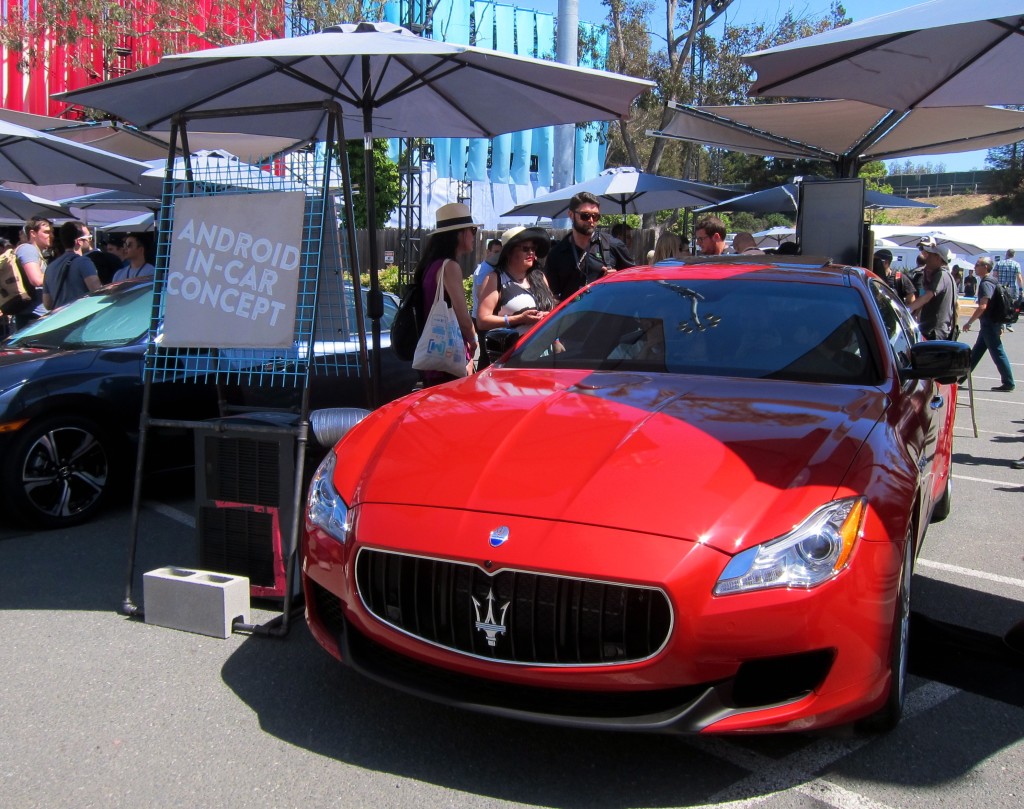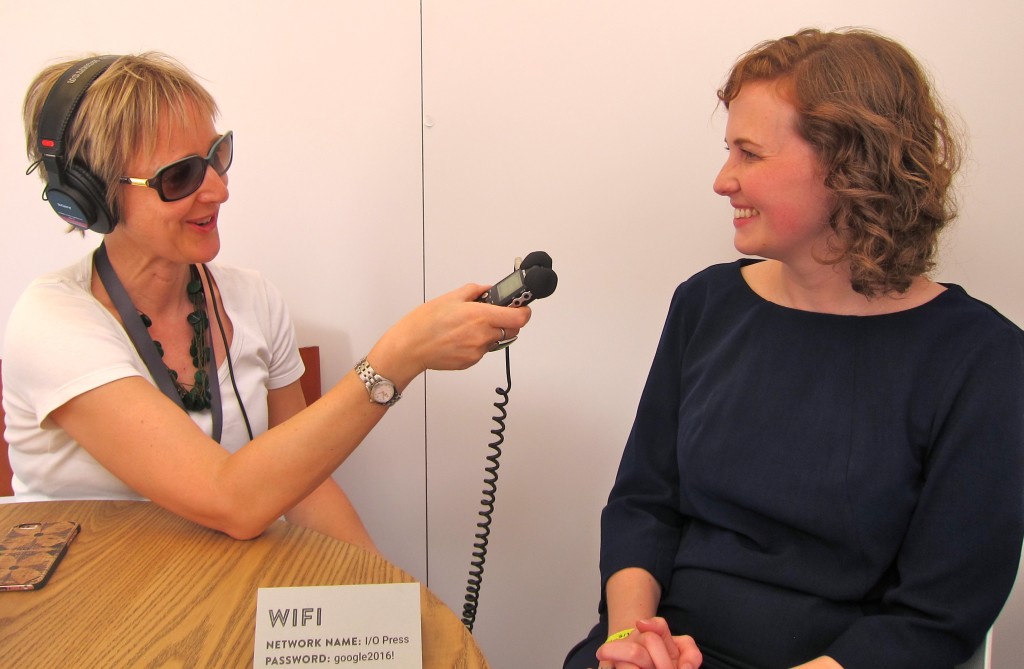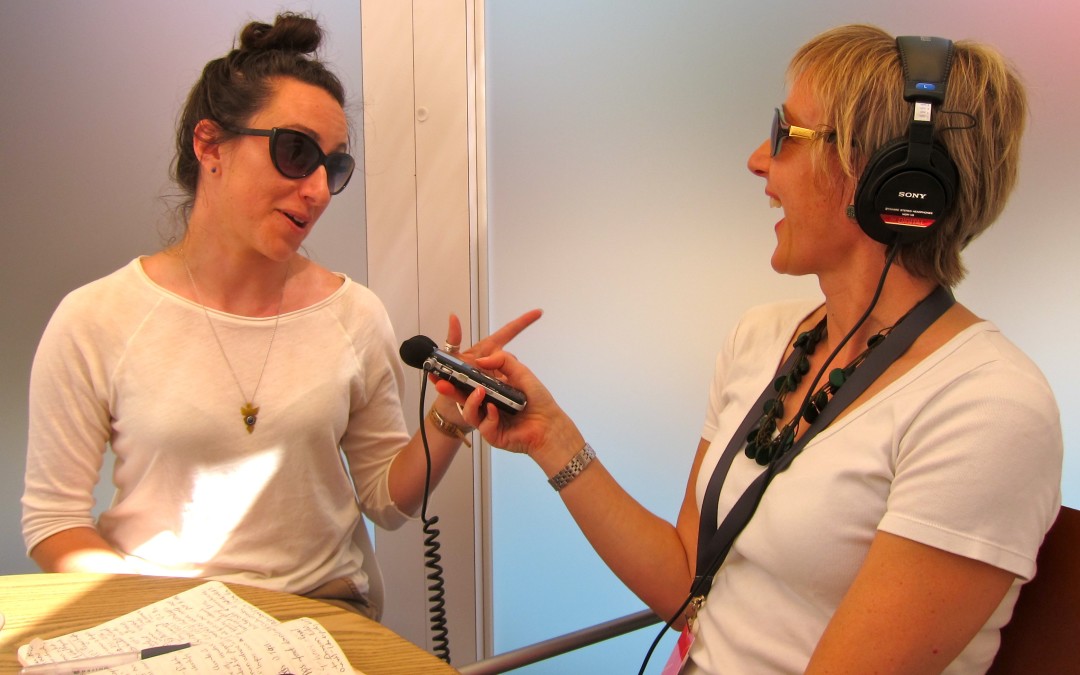By Alison van Diggelen, host of Fresh Dialogues
Why aren’t more women in tech? That was the main topic for discussion yesterday on BBC’s Business Matters. I shared my report from Google’s I/O conference, where almost one in four attendees were women. The Women Techmakers team managed to increase female attendance from 8% in 2013 to 23% this year. How did they do it and what can other companies learn from their strategy?
Listen to the podcast at the BBC World Service (Women discussion starts at 26:40) or use the clip below:
Here’s a transcript of our conversation, edited for length and clarity.
BBC Host, Roger Hearing: Have you thought how many women there are in the new high tech industries? Not enough is the general verdict. Have a quick listen to this:
Google CEO, Sundar Pichai: Welcome to Google I/O and welcome to Shoreline. It feels really nice and different up here. We’ve been doing it for many many years in Moscone and in fact we’ve been doing I/O for 10 years, but I feel we’re at a pivotal moment in terms of where we’re going as a company…. There are over 7,000 of you joining in person today.
BBC Host, Roger Hearing: That was the boss of Google, Sundar Pichai, opening a recent conference held near the tech giant’s headquarters in Mountain View, Silicon Valley. Alison, you were at that conference. Tell us more about it….
Alison van Diggelen: Google I/O is the annual Google developers’ conference. I/O stands for Input/Output and Innovation in the Open. It attracts thousands of developers from around the world who use Google’s open platforms, such as Android and Chrome, to build apps for your smartphone, smartwatch, or computer.
Google has been battling to increase the number of women in its tech teams, and I was pleased to see a decent number of women making presentations on the keynote stage. The company managed to triple the number of women attending the conference by partnering with other tech organizations like the Anita Borg Institute, Women Who Code and Hackbright academy.
At the conference, I spoke to Natalie Villalobos. She’s Google’s Head of Global Programs for “Women Techmakers.” I began by asking her WHY Google is seeking more women in tech…
Natalie Villalobos: We need everyone to contribute to make the most innovative technology. The more diverse voices we have, contributing, participating, and building the technology, the better technology we’re going to have…We always need more diverse voices at the table: for women, people of color, veterans, people with disabilities because the people building the tech should be as diverse as the people that the technology serves.
Alison van Diggelen: You went from 8% female attendance in 2013 to 23% this year, almost a quarter today. How did you do that?
Natalie Villalobos: ‘What could only Google do?‘ is a big rallying cry of my work and it was partnering with community organizations, locally, nationally and internationally to bring women to the conference, by providing travel grants, access to tickets and so we wanted to create these lasting partnerships…And one of the things we worked really hard at is how can we really engage women across the spectrum? We welcome all types of women: whether you identify as non-gender binary, women of color, Latinas…Also geographic diversity: We have women from South Africa, Taiwan, Tunisia, China…a lot are coming here to the U.S. for the first time for Google I/O.
 Alison van Diggelen: What makes you special, is it just deep pockets? (Google has earmarked $150M this year for its diversity programs)
Alison van Diggelen: What makes you special, is it just deep pockets? (Google has earmarked $150M this year for its diversity programs)
Natalie Villalobos: We’re really looking at how we can engage and meet developers, designers and entrepreneurs wherever they are. Diversity and inclusion in the tech industry is not just in the United States. There are people all over the world who want to be here in this industry who can’t move to Silicon Valley. How can we meet them where they are and share our new platforms, our technologies?
People who can’t come to Mountain View can join a local extendedI/O event – I believe we have over 400. Our biggest this year is in Sri Lanka with over 2000 attendees. It’s about reshaping the industry and supporting people where they are.
Roger Hearing: Alison, we’ve heard this a lot before…there aren’t enough women involved in the high tech industry. But it doesn’t seem to get any better.
Alison van Diggelen: It seems to be moving in the right direction but it’s very slow going. I actually had the chance to speak with Sundar Pichai and he said that this is a long long road. He’s talking about 10 years, 15 years before they can get close to equality. It’s a pipeline issue, it’s a role model issue. There are inherent biases in companies that make it more difficult for women to get into tech companies and thrive in tech companies. He did point out an encouraging fact that at Stanford University in Silicon Valley, the most popular major is no longer Biology but Computer Science. So anecdotal evidence like that says that perhaps we’re reaching a critical mass, perhaps a turning point, where women can feel at home in that geeky, computer science world.
Roger Hearing: Let me posit that maybe that’s because it’s Stanford…it’s California. Simon, let me come to you (in Singapore) In the high tech world where you are….where some of the most cutting edge stuff is going on. Are there many women involved?
Simon Long, The Economist: I’m struck when I visit multinationals (in Singapore) like Google and local startups how dominated they are by the young…and men. Alison put her finger on one of the main problems: who’s studying what at university? Who has the right skills? There are these ingrained prejudices…people recruit people like themselves.
 Alison van Diggelen: The pipeline issue is not the whole excuse. I did speak with Ellie Powers, a product manager at Google and she was on the keynote stage. It’s a lazy excuse, she says, “if you’re looking for gold, it’s rarer, you have to look a bit harder” and you have to figure out how find and connect with people outside your network. She put a challenge out there to Google and beyond for any company looking for women, in order to make a better team.
Alison van Diggelen: The pipeline issue is not the whole excuse. I did speak with Ellie Powers, a product manager at Google and she was on the keynote stage. It’s a lazy excuse, she says, “if you’re looking for gold, it’s rarer, you have to look a bit harder” and you have to figure out how find and connect with people outside your network. She put a challenge out there to Google and beyond for any company looking for women, in order to make a better team.
Roger Hearing: Perhaps the women are not there, they don’t want to do it? Is it a cultural bias?
Alison van Diggelen: I think there is a bias…there’s the stereotype of the geeky coder, but I think that’s changing. After being at that conference for an entire day, and seeing that one in four of the attendees were women. It was different from other tech conferences I’ve been at where if feels more like 10%.
Unconscious bias training will help. I think role models like Ellie Powers, up there on stage, wearing a dress, talking tech, being geeky…that will help get more young women to say, maybe coding is for me, maybe computer science is for me?
Roger Hearing: Simon, does it matter what the gender balance is?
Simon Long: I think it probably does…if everyone had equal access to do what they’re good at, the world would be a better place. As Alison says, if the problem is not just a pipeline one… If there are biases inhibiting women from doing as well as they might, then we’re all losing out.
Roger Hearing: If women were involved in designing the Apple Mac, would it be different, better?
Alison van Diggelen: Natalie’s point is relevant here: if your end product is for the world – 50% of which is women – you have to include women in the process. By attracting a more diverse employees base, you’ll get a better workforce. I talked with Steven Levy, a well-known tech author and he said, the days when a credible company can have an all-male conference or panel are just “way over” – it’s about sending a message to all people that they’re welcome. It’s about getting a better workforce and building better products. That’s the bottom line.
Read more about women in tech in Fresh Dialogues Inspiring Women Series
And find out more about The Anita Borg Institute




